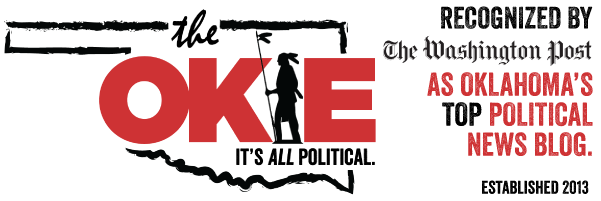Holt: Reflections On SRLC, 2016 and OKC’s Successes
Reflections On SRLC, 2016 and OKC’s Successes
By OK Sen. David Holt
Recently at the Southern Republican Leadership Conference in Oklahoma City, many of the candidates seeking the GOP nomination for President told the audience what they believe voters want to hear as they select our party’s nominee. I stood on that same stage and told them what I think they need to hear if they harbor realistic hopes that our nominee will ultimately become our nation’s President.
Oklahoma City was an appropriate place to deliver my message, because it possesses a rare quality – it is a large city governed by a Republican mayor. In fact, it has been for 28 years, five of which I spent as the mayor’s chief of staff prior to my election to the Oklahoma Senate.
The Republican Party currently enjoys a relatively high level of national success – over 30 governors, control of Congress, and control of over 70 percent of state legislative bodies. It is all the more jarring then to hear this statistic: Of the nation’s 100 largest metropolitan areas, just 15 of their central cities are governed by a Republican mayor. The Green Party considers that political relevance, but Republicans should expect better.
Even in Oklahoma, there are signs of growing Republican weakness in the urban areas. The Democratic candidate for Governor received just 41 percent statewide in 2014, but ran even with Governor Fallin in Oklahoma City, the state’s largest and fastest-growing population center.
And in Oklahoma and nationwide, it is not as if living in a large metropolitan area is a niche lifestyle. In fact, two-thirds of all Americans live in those top 100 metros I mentioned, the ones where the citizens look up just 15 percent of the time and see Republicans providing their community’s leadership. The bank robber Willie Sutton was once asked why he robs banks. He supposedly replied, “Because that’s where the money is.” The political version of that question and answer might be: “Why should the Republican Party want to compete in cities?… Because that’s where the voters are.”
Electoral woes in large cities should be worrisome for the GOP on multiple levels. No political party is putting itself in position to continue winning elections at all levels if it remains non-competitive at the level closest to the people. Voters will simply fall out of the habit of supporting Republicans for higher offices if they grow too accustomed to homogenous non-Republican leadership at the city level.
Another reason this should concern Republicans is that the absence of city governance is simply an enormous missed opportunity. Republicans take pride in competent governance and provision of core services. Republicans espouse a desire to provide just those things that only government could or should provide, and then to get out of the way. Well, what do cities do? They provide streets, police and fire protection, water and sewer, trash pickup – the core services of government that we use one hundred times a day. And then they get out of the way – at least the best ones do. Republicans stand for other things that are proven to be successful and popular at the local levels, such as standing up for the free market, school choice, or prioritizing taxpayers over government unions.
The most successful Democratic mayors – the ones who get re-elected and touted for national office – are the ones who do these things. The best Democratic mayors govern like Republicans. But instead of doing what it takes to have actual Republicans in these leadership roles, the party has ceded an entire level of government to others.
I said these things in Oklahoma City as part of a panel of rising stars. On the same day I spoke, so too did Republicans with national ambitions, like Governors Jeb Bush, Chris Christie and Bobby Jindal. For any of us to reach our potential, the Republican Party must be competitive across the country, in all types of settings, with all demographic groups. More specifically, for the Republican Party to thrive in the future, we must admit that we have a problem in America’s cities, and begin to do something about it.

